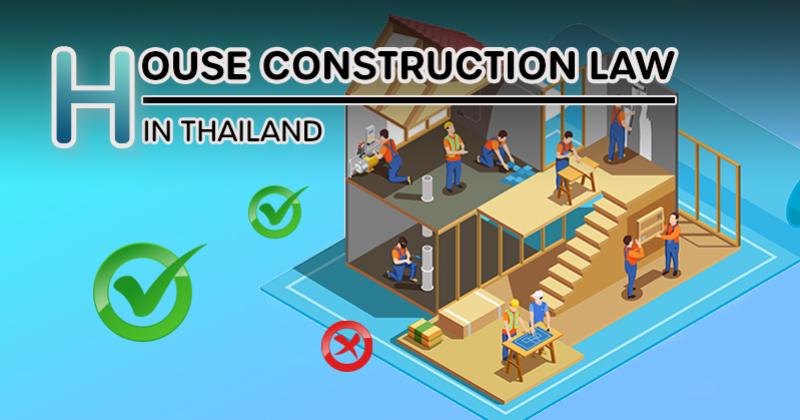Login/Register

Created : 3 Nov 2023
Updated : 3 Nov 2023
How can foreigners buy condominiums or houses in Thailand?
Can foreigners buy condominiums in Thailand?
The answer to the question in this context is 'yes,' but there are conditions for ownership, which are limited by the Condominium Act (No. 4) B.E. 2551, Article 19. It states that 'each condominium unit in a building can be owned by a foreigner or a juristic person, provided that when combined, the total ownership does not exceed 49 percent of the total space in all units in that building, while the registration of the condominium is in accordance with Article 6.' In simpler terms, foreigners can buy condominium units under full ownership (freehold) but are limited to a maximum of 49 percent of the total unit space in the condominium project.
"For example"
"In one condominium project, there are a total of 200 units, and each unit has an area of 100 square meters, resulting in a total area of 20,000 square meters. Therefore, foreigners can own freehold ownership of up to 9,800 square meters, and so on. "But if a condominium project has reached the maximum allowed foreign ownership limit, other foreigners will no longer be able to purchase units in that condominium."
Can foreigners purchase other types of real estate aside from condominiums?
The answer to this question is 'no,' as foreigners are generally not allowed to purchase other types of real estate besides condominiums. However, if a foreigner is registered as married to a Thai national, they can purchase other types of real estate, such as townhouses, land, or even single houses within a village project. This is possible either by being a co-borrower with the Thai spouse or by providing a guarantee for the Thai spouse, who is the primary borrower.
1.The steps for foreigners to buy a condominium
1.After choosing the desired condominium, the process for foreigners to buy a condominium typically begins with making a room reservation deposit, which is usually around 50,000-150,000 Thai Baht.
2.Next, there will be an appointment to create a Sale and Purchase Agreement. In the agreement, the details of the unit and the total amount to be paid will be specified. If there are installment payments for the down payment, they will also be outlined in this contract.
3.The next step is the transfer of ownership. The buyer will need to prepare the funds or arrange for a loan if not purchasing in cash. Foreigners can authorize a developer or an agent to carry out the ownership transfer at the Land Office on their behalf, but they should also prepare the necessary documents in Thailand themselves.
4.The final step in the process of foreigners buying a condominium is that the foreign buyer will receive a title deed for the unit and a sale and purchase agreement from the Land Office, which signifies that the foreign buyer is the full owner of the condominium.
2.Payment process for foreigners buying condominiums in Thailand
1.Reservation Fee: This can be paid through credit card or by transferring money from abroad.
Down Payment: Usually, the down payment is around 20-30% of the unit's price.
2.Each installment of the down payment should be transferred from abroad in foreign currency.
3.Ownership Transfer: The funds for the ownership transfer should also be transferred from abroad in foreign currency unless the foreign buyer has funds in a Thai bank account. If the buyer has the full amount, they can pay it directly. If not, foreign buyers can apply for a loan from a Thai bank or financial institution to make the payment."
3.Money transfer
Foreigners who have funds in a Thai bank account cannot transfer money directly for property purchase; they must transfer the funds abroad first and then transfer them back to Thailand to obtain a FOREX/FET certificate, which will be used as documentation for future property transfers.
When transferring money to Thailand for the purchase of a condominium, foreigners can transfer the funds directly to the developer or seller or transfer the money into their own account in Thailand before transferring it to the seller."
"Foreigners who transfer money from abroad for property purchases must have a bank account in a foreign country to be able to initiate the money transfer process. They can transfer the funds directly to the seller or transfer the money into their own Thai bank account before further transferring it to the seller.
However, there is an exception for Chinese nationals, as Chinese law does not permit Chinese citizens to transfer money for the purchase of overseas real estate. Therefore, if a Chinese national wishes to buy a condominium in Thailand, they must open a bank account in Thailand first and then gradually transfer money from abroad into their Thai bank account.
Chinese law specifies that Chinese citizens can only transfer a maximum of $50,000 per person per year to foreign countries. Therefore, for condominium purchases exceeding this limit, another person may need to transfer the money into the buyer's Thai bank account. After the money has been transferred into the buyer's Thai bank account, they can proceed to transfer the funds to the developer or seller.
4.Preparing documents for applying for a home loan for foreigners.
Preparing documents to apply for a home loan for foreigners is similar to the process for Thai citizens, with documents divided into three categories:
1.Category 1: Personal Identification Documents
- Passport
- Visa (permit to stay in Thailand)
- Work Permit (if applicable)
- Marriage Certificate (if registered with a Thai spouse)
2.Category 2: Financial Capability Documents
- Income Certification
- Payment Slips
- Bank Account Statements showing transaction history
- Tax Return documents or Withholding Tax Certificates
3. Category 3: Property Details Documents
- Condominium Title Deed (Chanote)
- Building layout plans
- Unit floor plans
- Property photographs
- Sale and Purchase Agreement
- Deposit Agreement or proof of down payment
Thanks for the information

